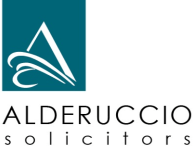Separating couples involved in a family law property settlement are often under emotional and financial pressure. When one or both parties are involved in a business, this can add additional stress and complexity to the division of property.
A business interest, whether held individually or jointly, through a partnership, company or trust, forms part of the asset pool and must be accounted for when dividing property.
A formal valuation for the business can help provide clarity and assist the parties to negotiate a financial settlement.
Why value a business?
When couples separate, the division of property is not purely a mathematical exercise. This is particularly so when considering a family business which may be the sole or significant vehicle for the family income.
If the business is profitable, or likely to become profitable, one of the parties may wish to retain it and ‘pay out’ the other. This is where disputes most likely arise as there will be discrepancies about what the business is worth, influenced respectively by whether each party is the proposed continuing or exiting business owner.
Many factors must be considered to provide a pragmatic and workable solution for both parties. This is where a formal business valuation by a qualified expert can be of benefit.
Choosing a valuer
It is important that the valuer appointed be an impartial and neutral expert who is familiar with family law matters, the requirements for preparing expert reports and, if necessary, giving evidence in Court.
Both parties should agree on the expert appointed and provide joint instructions.
The benefits of engaging a single valuer are that the parties usually share the expense, the process is streamlined, and the evidence is generally accepted by the Court without further application. In limited cases, individual valuations may be requested, and permitted by a Court.
If the parties are represented, their lawyers should work together to identify a suitably qualified valuer, obtain costings and determine the terms of reference for the valuation. Correspondence should include the relevant Family Law Rules with which the appointed expert must comply in providing the report.
Arranging the report and the importance of disclosure
Once the valuer and costs are agreed, written instructions are provided by each party’s lawyer. The instructions will set out the terms of reference and additional information is provided to assist in making the assessment.
The Family Law Act 1975 (Cth) requires that separating couples make genuine efforts to resolve disputes, and, as far as practicable, comply with the duty of full and frank disclosure. Where business interests are concerned disclosure documents may include balance sheets, profit and loss statements, budget and cashflow forecasts, supply and service contracts, business activity statements, tax returns, deeds, joint venture agreements and trusts.
The extent of information required will be determined by the complexity and (likely) value of the business and the valuer may request additional information to consider a proper assessment.
Valuing the business
By nature, businesses can be inherently complex and attributing a monetary value to a business will require consideration of several factors.
The business may be in its start-up phase with minimal assets but potential for good future earnings and growth. Significant benefit may be placed on the goodwill of a business by one party, which value may be fiercely contended by the other.
The valuer will review the information provided and adopt the most appropriate means of valuing the business, usually from a set of generally accepted principles and valuation methods. The likely taxation consequences should the business be sold, may be considered as well as a comparison with other businesses within the same industry.
The method used to determine the value may be based on income, on assets, a market approach or an approach that considers the unique value to the potential business owner.
Conclusion
Relationship breakdowns can have a disruptive effect on a family business, and it is important that parties try to work amicably to maintain its usual activities and preserve business relationships and reputation.
If you have been operating a family business and are separating, it is important to understand the value of the business which will ultimately form part of a financial property settlement.
A formal business valuation can be used in the early negotiations of a financial property settlement, during mediation or, if necessary, in Court proceedings.
If you or someone you know wants more information or needs help or advice, please contact us on 03 9670 7440 or email [email protected].
